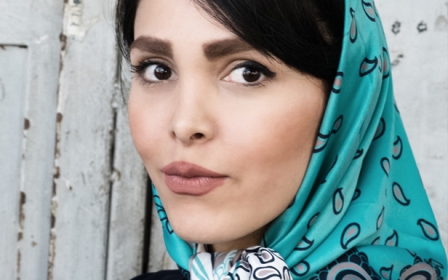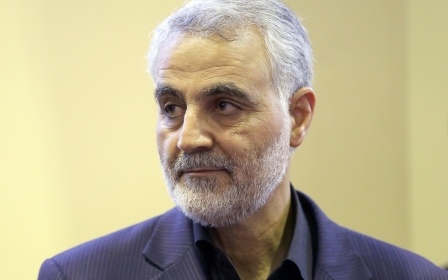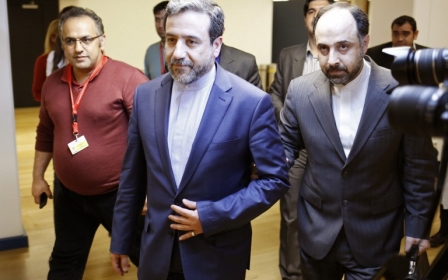Final round in 'historic' Iran nuclear talks

Iran nuclear talks entered the decisive, dangerous endgame on Thursday with a final round of negotiations potentially going all the way to a 20 July finish line.
The deal being sought by Iran and the five permanent members of the UN Security Council plus Germany would finally ease fears of Tehran getting nuclear weapons and silence talk of war, in exchange for ending punishing sanctions on the Islamic republic.
With extremist militants overrunning large parts of Iraq and Syria in chaos after years of civil war, this could help Tehran and the West normalise relations at an explosive time in the Middle East.
"In this troubled world, the chance does not often arise to reach an agreement peacefully that will meet the essential and publicly expressed needs of all sides, make the world safer, ease regional tensions and enable greater prosperity," US Secretary of State John Kerry said this week.
In a Washington Post tribune, he warned Iran not to "squander a historic opportunity to end Iran's economic and diplomatic isolation and improve the lives of their people".
The P5+1 powers (The United States, Russia, China, Britain, France and Germany) have proposed a "series of reasonable, verifiable and easily achievable measures that would ensure Iran cannot obtain a nuclear weapon and that its program is limited to peaceful purpose," he said.
"What will Iran choose? Despite many months of discussion, we don't know yet."
Iranian Foreign Minister Mohammad Javad Zarif, in a video message, called the talks a "unique opportunity to make history", saying success would allow both sides to address "common challenges" such as Iraq.
Major differences
But with major differences apparent after five rounds of talks seeking to secure a deal by 20 July - when an interim deal from November expires - Zarif said in French daily Le Monde that some among the P5+1 were suffering from "illusions".
The United States, Russia, China, Britain, France and Germany want Iran to majorly reduce in scope its nuclear activities in order to render any Iranian drive to assemble a weapon all but impossible.
This would include Iran slashing its capacities to enrich uranium, a process that produces nuclear fuel but also, at high purities, the core of a nuclear weapon.
In itself, that would represent a concession to Iran, which is defying six UN Security Council resolutions ordering it cease all enrichment.
But Iran insists it has made too many advances in uranium enrichment to turn the clock back. It rejects any need to cut its number of centrifuges and says it even needs to expand their number to fuel a fleet of future nuclear power plants - facilities that it would be decades away from having.
Demands that Iran's programme be "radically curbed" rest on a "gross misrepresentation of the steps, time and dangers of a dash for the bomb", Zarif said.
He said Iran "will not abandon or make a mockery of our technological advances or our scientists".
Iranian negotiator Majid Takhte Ravanchi said Iran "will not accept definitive restrictions" on its nuclear programme.
"If (the other side) have a maximalist position ... there will be no deal," he said.
Extra time?
In theory, the 20 July deadline could be extended by up to another six months, and many analysts believe this is already being discussed.
But US President Barack Obama, facing midterm elections in November and Republican accusations of weakness, is wary of doing anything that could be construed as giving Iran more time to get closer to having the bomb.
This is the long-standing accusation of Israel, the Middle East's sole if undeclared nuclear-armed state that together with Washington has not ruled out military action on the Islamic republic.
But Kelsey Davenport from the Arms Control Association believes that Washington should not shy away from pushing back the deadline if Iran is "negotiating in good faith".
"The alternative to no deal is far worse for the international community," she told AFP.
Iranian FM: Excessive demands to hamper nuclear talks
Iran is ready to reach and implement a lasting agreement regarding its nuclear program, but it will not yield to excessive demands from the West, Iranian Foreign Minister Javad Zarif said Wednesday.
"Iran is ready to alleviate the concerns of the international community, but we believe that imposition only hinders efforts to resolve the dispute," Zarif told journalists upon arriving in Vienna for the sixth round of talks with the p5+1 countries over Tehran's controversial nuclear program.
Zarif said that the p5+1 countries were trying to impose limitations on Iran's rights of developing enriched uranium, centrifuges and construction of heavy water reactors.
"Iran does not need anything beyond its rights," he said.
Under a deal reached in Geneva on 24 November, 2013, western countries agreed to provide Iran with some sanctions relief in exchange for it agreeing to limit certain aspects of its nuclear activities by 20 July.
New MEE newsletter: Jerusalem Dispatch
Sign up to get the latest insights and analysis on Israel-Palestine, alongside Turkey Unpacked and other MEE newsletters
Middle East Eye delivers independent and unrivalled coverage and analysis of the Middle East, North Africa and beyond. To learn more about republishing this content and the associated fees, please fill out this form. More about MEE can be found here.




